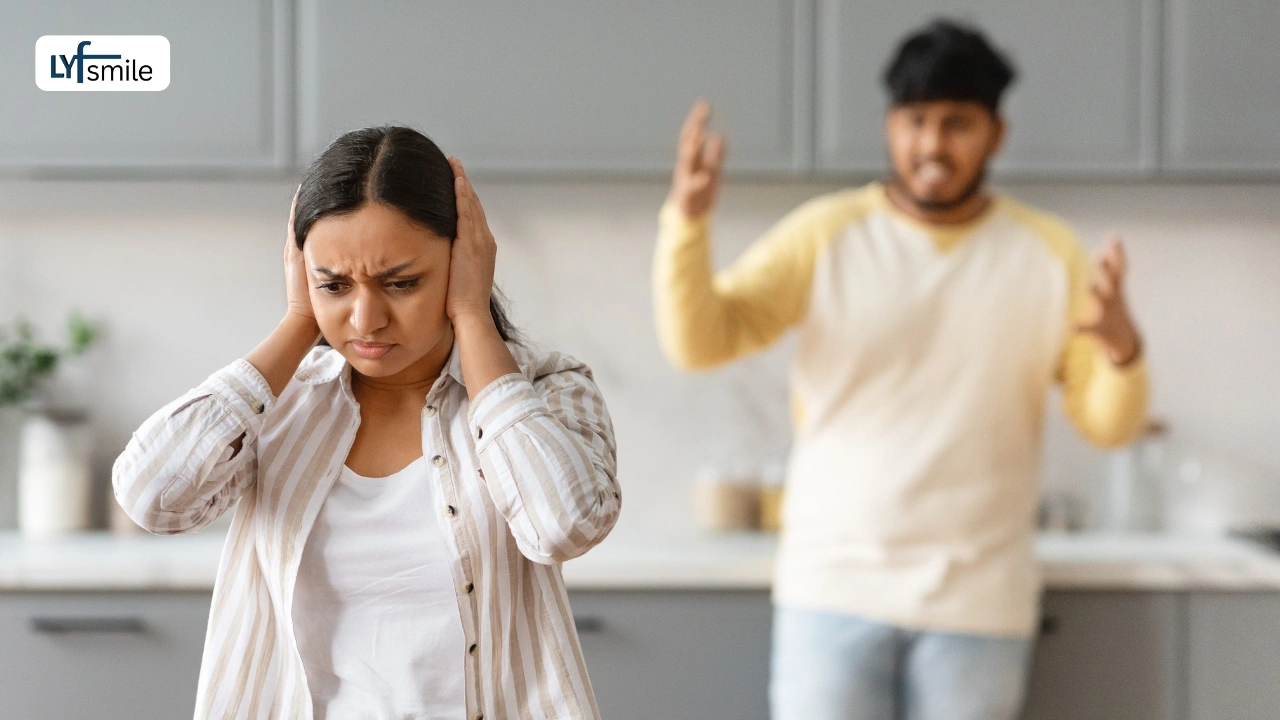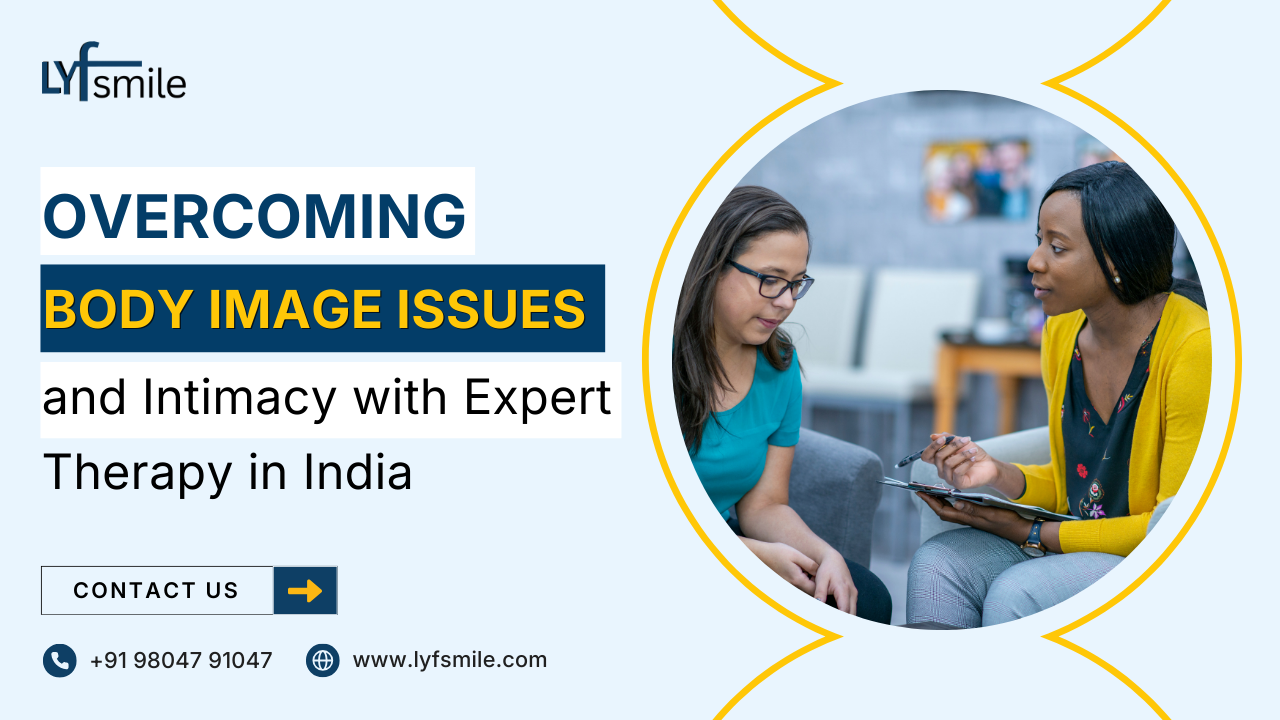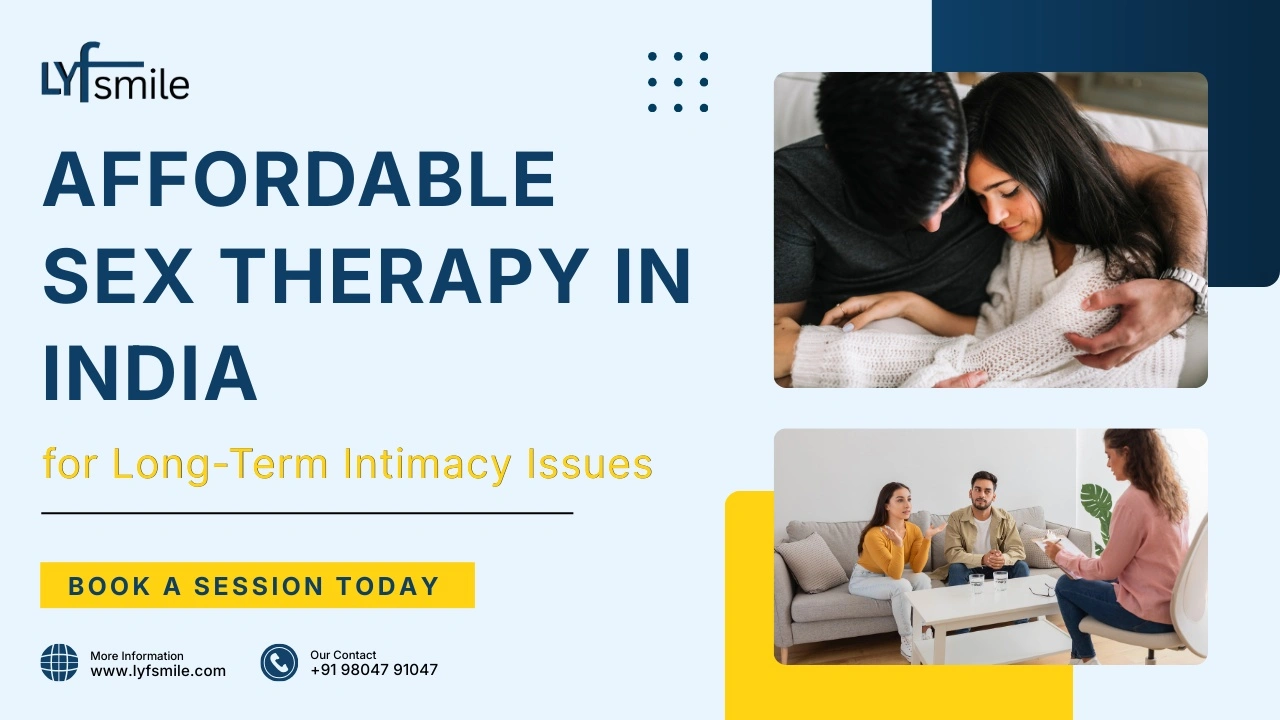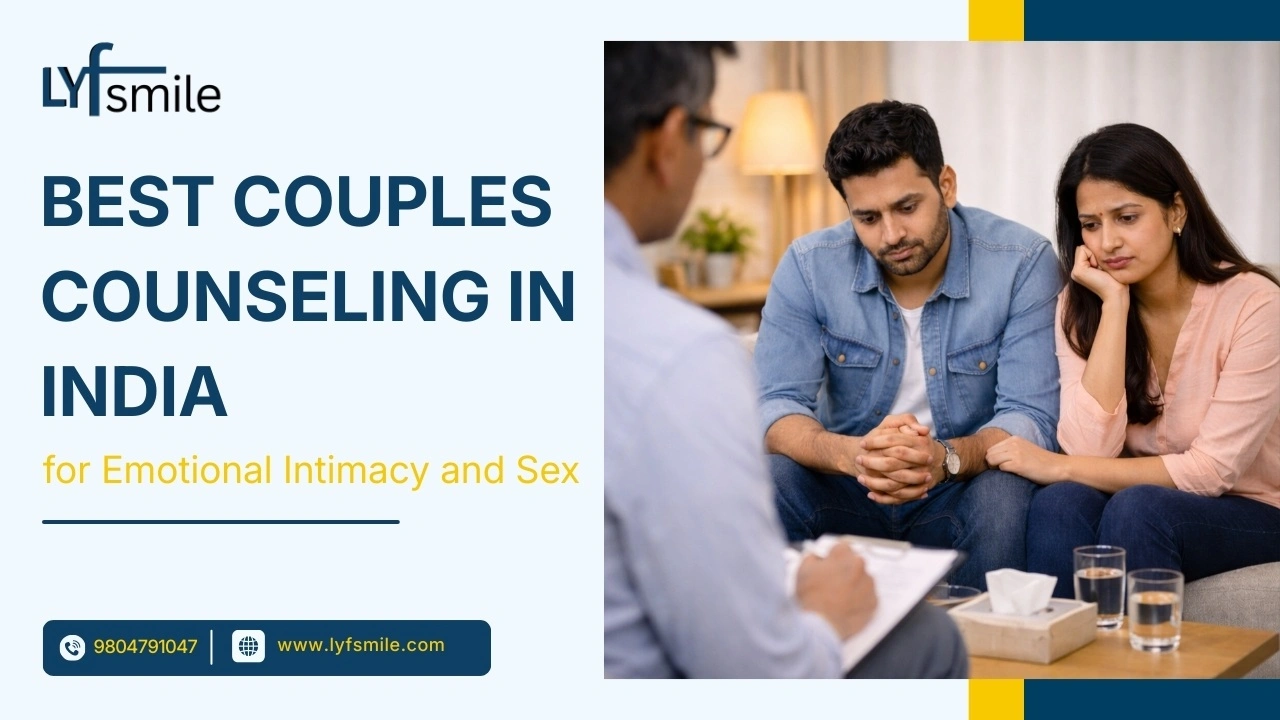
Anupam Tripathi
India’s Best Psychologists for Post-Marriage Counselling
Marriage is a lifelong journey filled with love, companionship, and shared dreams. However, even the strongest relationships can face emotional turbulence after marriage. Miscommunication, work pressure, and family expectations often create distance between partners. In such cases, seeking guidance from the Best Psychologists for Post-Marriage Counselling can help couples rebuild understanding and rediscover emotional balance.
In India, the awareness about mental health and couples therapy has grown significantly. Many couples now prefer professional help over silent suffering. Several famous psychologists in India offer both offline and online therapy for depression, anxiety, and relationship issues — making it easier for partners to get expert help from the comfort of their homes.
What Is Post-Marriage Counselling?

Post-marriage counselling is a form of therapy designed to help couples strengthen their bond after marriage. Unlike pre marriage counselling, which focuses on preparation before marriage, post-marriage counselling helps couples resolve ongoing issues and improve mutual understanding.
In simple terms:
It’s a guided process that helps two partners communicate better, manage conflicts, and build a happier life together.
Key Goals of Post-Marriage Counselling:
To improve communication and rebuild emotional connection
To manage conflicts before they grow into serious problems
To restore trust after misunderstandings or betrayal
To support mental health and reduce relationship stress
To develop shared values and healthy boundaries
Therapists and counsellors who specialize in this area use modern, evidence-based techniques to help couples strengthen their relationships. The Psychologists for Post-Marriage Counselling create a safe, judgment-free space where both partners can express their feelings openly.
How It Works:
Initial Session: The psychologist listens to both partners and understands their main concerns.
Goal Setting: Together, the couple and therapist decide what they want to achieve (better communication, rebuilding trust, etc.).
Therapy Process: Each session involves open discussions, emotional exercises, and sometimes role-reversal techniques to build empathy.
Progress Review: Over time, the therapist helps track emotional progress and suggests ways to maintain balance at home.
Benefits of Post-Marriage Counselling:
Builds stronger communication habits
Reduces emotional stress and resentment
Helps understand your partner’s perspective
Improves intimacy and mutual respect
Prevents minor conflicts from becoming major issues
Modern couples are realizing that professional therapy isn’t a last resort — it’s a way to protect and nurture a relationship. Thanks to the Psychologists for Marriage Counselling, partners now have access to expert help that focuses on long-term happiness rather than short-term fixes.
Whether you’ve been married for months or years, counselling can guide you toward a deeper, more fulfilling connection. In a world where time and stress can create emotional gaps, post-marriage counselling offers hope, healing, and a stronger bond for life.
Common Marriage Issues Faced by Couples After Marriage
Every marriage goes through ups and downs, no matter how strong the bond seems in the beginning. Over time, small misunderstandings or lifestyle differences can turn into emotional distance. Recognizing these issues early can help couples seek timely help from Psychologists before things become too complicated.
Here are some of the most common issues couples face after marriage:
1. Communication Gaps
Poor communication is one of the biggest reasons couples struggle. Sometimes, partners stop sharing their thoughts honestly or misunderstand each other’s tone. Over time, silence replaces meaningful conversation.
Common signs include:
Frequent arguments without resolution
Avoiding discussions about emotions
Feeling unheard or dismissed
Tip: Counsellors help couples rebuild open and honest dialogue so both feel respected and understood.
2. Financial Stress
Money is often a sensitive subject in marriage. Disagreements about spending, saving, or sharing responsibilities can cause tension.
Couples may argue over:
Monthly budgeting and savings goals
Lifestyle differences (one saves, the other spends)
Financial independence and control
3. Lack of Emotional or Physical Intimacy
When emotional connection weakens, intimacy often fades too. Partners might feel lonely even while living together.
Possible reasons:
Stress and exhaustion from work or family
Unresolved anger or past arguments
Mental health struggles like anxiety or depression
Therapists often integrate elements of online therapy for depression to address underlying emotional issues that affect closeness.
4. Family and In-Law Conflicts
In India, extended families often play a big role in married life. While family support can be positive, interference or pressure can cause serious stress.
Common triggers include:
Difference in traditions or parenting styles
Feeling controlled by in-laws
Lack of privacy or boundaries
Post-marriage counselling teaches couples to set respectful boundaries while maintaining healthy family relationships.
5. Parenting Challenges
Parenting brings joy but also new stress. Differences in discipline, time management, or values can cause disagreement.
In such cases, couples may even explore parenting counselling alongside marriage therapy.
Typical parenting issues:
Disagreement on how to raise children
Uneven sharing of responsibilities
Struggles balancing work and family time
6. Trust Issues and Infidelity
One of the most painful challenges in marriage is loss of trust—whether due to betrayal, dishonesty, or emotional withdrawal. It can deeply wound the bond between partners.
Professional therapy provides a structured, non-judgmental space to heal trust and rebuild emotional security.
7. Unrealistic Expectations
Movies, social media, and societal pressure often create unrealistic standards for love and marriage. When real life doesn’t match these expectations, disappointment follows.
In Summary
Marriage issues are normal — what truly matters is how couples choose to address them. Seeking help early shows maturity and care for the relationship. With expert guidance from the top Psychologists for Post-Marriage Counselling, couples can turn struggles into opportunities for deeper connection, respect, and lifelong understanding.
How to Fix Marriage Issues with the Help of Counselling

Marriage problems don’t always mean a relationship is failing — they simply indicate areas that need attention and care. With professional help, couples can rebuild trust, improve understanding, and restore happiness. The famous Psychologists for Marriage Counselling follow structured therapeutic methods that focus on practical communication tools and emotional healing.
1. Identifying the Root Cause
Most couples argue about surface-level issues — finances, chores, or time. But the real causes often lie deeper, such as feeling unheard, unappreciated, or emotionally disconnected.
How counselling helps:
The therapist identifies underlying emotional patterns.
Both partners learn to express feelings without blame.
Counsellors help each person understand why conflicts repeat.
Once the root cause is clear, it becomes easier to create lasting solutions.
2. Rebuilding Effective Communication
Poor communication is one of the biggest reasons couples drift apart. Counselling introduces techniques that rebuild respect and emotional connection.
Techniques often used by the top Psychologists for Post-Marriage Counselling:
“Active Listening” exercises to ensure both partners feel heard
“I-feel” statements instead of blame (“I feel hurt” vs. “You never listen”)
Learning to pause and reflect before reacting
Practicing appreciation and gratitude daily
These small but powerful habits can completely transform the emotional environment in a marriage.
3. Managing Emotions and Expectations
Unrealistic expectations can lead to disappointment. Counselling helps couples understand that differences are normal — and manageable.
Psychologists guide couples to:
Recognize emotional trgiphy iggers
Practice empathy instead of criticism
Set realistic expectations and shared goals
Build daily habits that encourage appreciation
Over time, these practices reduce frustration and increase emotional safety.
4. Healing from Past Hurts
Sometimes, unresolved past conflicts or betrayals make it difficult to move forward. Healing these wounds is essential to rebuild trust.
Through therapy, couples learn to:
Forgive and let go of resentment
Reconnect emotionally and physically
Develop new rituals of closeness (like weekly check-ins or shared hobbies)
5. Building Long-Term Relationship Skills
Good counselling doesn’t end with temporary peace — it helps couples learn lifelong skills to handle future challenges.
These include:
Conflict-resolution strategies
Emotional regulation tools
Time-management and shared decision-making skills
Understanding love languages and personality differences
Many counsellors also suggest online therapy for depression or stress management sessions if emotional issues like anxiety or burnout affect the marriage.
6. Integrating Family and Parenting Goals
For couples with children, balancing marriage and parenting can be tricky. That’s why some therapists combine parenting counselling with couple sessions.
This helps couples:
Create a unified parenting approach
Manage disagreements calmly in front of kids
Divide responsibilities fairly
Strengthen teamwork within the family
Healthy parenting begins with a healthy marriage — and counselling ensures both thrive together.
In Summary
Fixing marriage issues isn’t about winning arguments — it’s about rebuilding respect, compassion, and teamwork. With consistent sessions and expert guidance from the Best Psychologists for Post-Marriage Counselling, couples can turn daily conflicts into opportunities for growth.
Therapy offers a new perspective, better communication, and emotional balance — everything that keeps love alive long after the wedding day.
How Psychologists Help Couples in Marriage Issues

Professional help can make a world of difference when relationships hit a rough patch. The Best Psychologists for Post-Marriage Counselling don’t just listen — they apply proven therapeutic strategies that bring understanding, healing, and hope back into the marriage.
Here’s how psychologists support couples step-by-step
1. Creating a Safe and Neutral Space
A psychologist ensures that both partners feel heard without judgment. Unlike family or friends, who may take sides, therapists remain neutral and focus on mutual growth.
In sessions, psychologists:
Listen carefully to both perspectives
Maintain confidentiality and trust
Encourage open, respectful communication
This neutrality helps couples open up about sensitive issues and express their true feelings.
2. Analyzing Communication and Emotional Patterns
Every couple develops a unique pattern of communication — some positive, others negative. Psychologists observe these patterns to identify recurring conflicts.
They help partners:
Recognize unhealthy habits like criticism, sarcasm, or withdrawal
Replace blame with empathy and active listening
Express needs clearly instead of expecting mind-reading
3. Providing Practical Tools and Exercises
Therapy isn’t only about talking — it’s also about practice. Couples are often given small “homework” tasks between sessions.
Common exercises include:
Journaling emotions and trigger
Scheduling quality time together
Gratitude sharing (appreciating one thing daily about each other)
Conflict-resolution role plays
Such small steps bring consistency and help maintain a positive shift even outside the therapy room.
4. Supporting Emotional Health
Many marriage problems stem from stress, anxiety, or unresolved mental health issues. In such cases, psychologists may combine online therapy for depression or stress-management sessions to help each partner individually.
This holistic approach ensures that both emotional and relational healing occur together.
5. Encouraging Long-Term Relationship Growth
The ultimate goal isn’t just solving present conflicts — it’s building emotional intelligence for the future. Psychologists help couples see challenges as opportunities to grow closer.
They teach couples to:
Communicate proactively, not reactively
Prioritize emotional check-ins
Celebrate progress, no matter how small
Stay curious about each other’s evolving needs
When guided by experts, couples learn that love isn’t about perfection — it’s about continuous effort and understanding.
Types of Counselling and Therapy to Solve Marriage Issues

Every couple’s story is different — and so are the therapy methods used to heal. The Best Psychologists for Post-Marriage Counselling choose specific therapeutic approaches depending on personality, cultural background, and relationship dynamics.
Below are the most common types of counselling and therapy used to strengthen marriages
1. Cognitive Behavioural Therapy (CBT)
CBT helps couples identify and change negative thinking patterns that lead to conflict.
Benefits:
Improves problem-solving skills
Reduces emotional reactivity
Helps partners manage anger and expectations
2. Emotion-Focused Therapy (EFT)
EFT focuses on understanding and expressing deep emotions safely.
Why it works:
Builds empathy and emotional connection
Encourages vulnerability and honesty
Strengthens trust between partners
3. Family Systems Therapy
This approach looks at how family background and relationships influence current behaviour.
It helps to:
Understand family roles and inherited patterns
Resolve in-law or parenting conflicts
Create healthier boundaries within the family
4. Solution-Focused Brief Therapy (SFBT)
SFBT is a short-term method that emphasizes finding quick, practical solutions rather than rehashing problems.
Perfect for:
Couples needing immediate guidance
Time-sensitive or specific issues like decision-making or co-parenting
5. Integrative and Holistic Counselling
Some psychologists combine multiple approaches — CBT, mindfulness, and communication training — to suit each couple’s needs.
The Best Psychologists for Post-Marriage Counselling often use this flexible style to personalize the healing journey.
6. Pre and Post-Marriage Therapy Combination
Many couples now choose therapy both before and after marriage. While pre marriage counselling prepares couples for commitment, post-marriage therapy ensures they stay emotionally connected through changing phases of life.
Together, these sessions act as long-term emotional maintenance for a strong and resilient marriage.
Why Choosing the Best Psychologists for Post-Marriage Counselling Matters
In a relationship, early guidance can prevent years of pain and misunderstanding. Choosing the Best Psychologists for Post-Marriage Counselling means trusting experts who blend empathy with evidence-based practice. They don’t just mediate arguments — they rebuild the emotional foundation of love and partnership.
Qualities to look for in the right psychologist:
Licensed and experienced in couple or family therapy
Positive reviews or references
Offers both in-person and online sessions
Comfortable discussing sensitive topics
Uses transparent and goal-oriented methods
Many of the famous psychologists in India also offer hybrid therapy models — combining online and face-to-face sessions — for flexibility and privacy.
LyfSmile: Trusted Experts for Pre and Post-Marriage Counselling in India

Building a happy marriage doesn’t happen by chance — it takes understanding, patience, and professional guidance. LyfSmile stands among India’s Best Psychologists for Post-Marriage Counselling, offering personalized therapy sessions that help couples strengthen their bond and resolve conflicts with compassion.
Whether you’re preparing for a lifelong partnership or healing emotional gaps after marriage, LyfSmile’s certified psychologists provide structured, result-driven support through both pre-marriage counselling and post-marriage counselling programs.
Why Couples Choose LyfSmile
Comprehensive Support: From understanding compatibility before marriage to restoring trust after marriage, LyfSmile covers every stage of a relationship.
Expert Team: Our counsellors are experienced professionals who specialize in marriage, family, and parenting counselling.
Flexible Therapy Options: LyfSmile offers both in-person and online sessions, making it easier for couples to access therapy from anywhere in India.
Confidential and Compassionate: Every session provides a safe, judgment-free space for couples to express feelings openly.
Holistic Healing: We combine emotional, mental, and relational well-being through scientifically backed therapy methods.
How LyfSmile Helps You Grow Together
For Pre-Marriage Counselling, LyfSmile helps couples understand compatibility, manage expectations, and develop strong communication before tying the knot.
For Post-Marriage Counselling, our experts guide couples through real-life challenges such as trust issues, parenting conflicts, or emotional disconnection — helping them rediscover harmony and love.
At LyfSmile, the goal isn’t just to fix problems but to help couples build lasting emotional resilience. Every session is personalized to your relationship’s unique story, ensuring you and your partner walk together toward a happier, more fulfilling marriage.
With LyfSmile by your side, a healthier, more connected, and loving relationship is always within reach.
Conclusion
Marriage isn’t about avoiding problems — it’s about facing them together. With the help of the Best Psychologists for Post-Marriage Counselling, couples can transform conflicts into deeper understanding, rebuild trust, and create a stronger emotional bond.
Whether it’s parenting counselling, managing stress through online therapy for depression, or learning better communication, therapy provides couples with tools to grow together, not apart.
If your relationship feels stuck or distant, take the first step today. Seeking guidance from professionals isn’t a sign of failure; it’s a sign of love, courage, and commitment to a happier life together.








